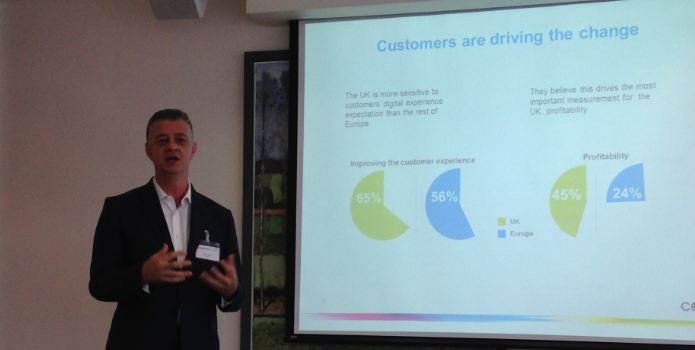UK businesses are experiencing a tech deficit according to research commissioned by information delivery platform Colt Technology Services.
The research is based on a survey of more than 800 enterprise and small to medium enterprise IT decision makers across eight European countries.
Colt states in its research appropriate infrastructure foundations such as network, IT, data center and voice are crucial to a business’s success.
It said infrastructure must now do more to enable businesses to understand and meet customer expectations.
“This gap, a technology deficit is real and it is growing for European businesses,” Colt said.
Colt’s EVP Mark Leonard stated customer demand for digital access has grown.
“We expect a digital experience in this day and age. Technology has advanced and now users expect services at their fingertips,” Leonard said.
“This demand needs to be supported by having the right infrastructure in place. There is a growing demand for remote working on tablets and wireless devices.”
The survey – taken by 107 UK technology decision makers - shows the UK is among the most prepared with 64% admitting they face a moderate or significant tech deficit – under the European average of 72%.

A graph showing the results of the tech deficit across Europe
Leonard said from the IT view to commit to a digital economy there are three restrictions that need to be addressed – cost pressures, storage requirements and data center security.
As a whole the majority of European organizations highlighted their infrastructure foundations need to evolve over the next two years to meet future business needs including – voice and communications (88%), data center infrastructure (90%) and network infrastructure (85%).
Colt’s research suggests there is a need to prioritize decisions around buying, using and managing infrastructure.
These decisions will involve introducing simplicity and flexibility into business models in order to successfully evolve from technology ownership towards more efficient methods of delivering services to customers who require a more flexible approach to their changing needs.
Baker & McKenzie’s head of the global technology practice group Harry Small said flexibility is key for business services.
“The longer you try and tie a customer into a service contract, the less likely you are to succeed,” Small said.
“Technology is evolving; you don’t want to be tied into a five year contract. Businesses need to provide flexibility for their customers.”
Small said finance is also a big part of decision making for companies when it comes to moving towards a digital economy.
“Businesses need to look at the long term benefits rather than short term expenses. Yes it can be a big, upfront expense but you need to look at the long term results and benefits for the company and the customer,” Small said.
In the UK a third (34%) of businesses think their current infrastructure is ready for the digital economy and is scalable to provide peaks, troughs and complexity of demand and half (50%) said they are not currently ready but have a strategy in place to address it.
UK companies cited the need to deliver customer satisfaction (60%) while delivering profitability (65%) and revenue (56%) to the business as the three top measures of business performance and success.
Blenheim Chalcot’s CTO David Abensour said the digital economy is affecting businesses across all industries and creating a need for companies to rethink their customer services.
“Infrastructure plays a vital role in fuelling growth and innovation and the tech deficit research highlights the need for organizations to change the way they view, manage and buy infrastructure,” Abensour said.
Abensour said cultural and emotional challenges can also play a big part in the process.
“IT can be reluctant to change. They need to be brave and take the risks,” Abensour said.
Colt said based on its research it has identified three key trends for European businesses:
- Service based delivery will help change how businesses think about owning infrastructure, moving away from buying technology and embracing a service based model.
- Flexibility will drive business models and commercial arrangements. Businesses will seek out suppliers that enable them to manage change.
- Simplification of processes will empower the IT department: moving to the cloud, consolidating suppliers and identifying strategic partners.

